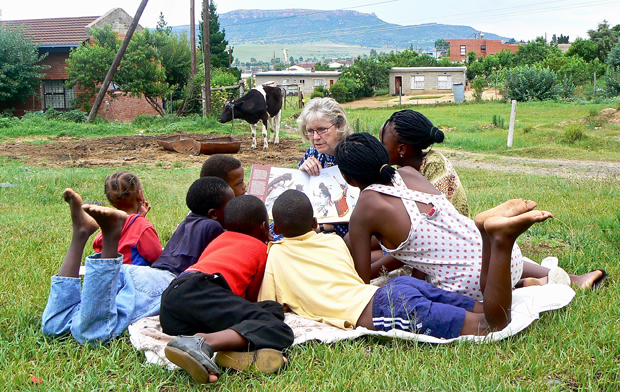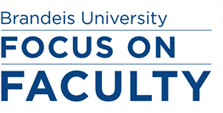ExCEL Brandeis
Events, information, accomplishments, stories, projects, highlights, students, community, learning
4.20.2012
Learning About Voting System Through an Immigrant's Eye
1.04.2012
Changing the world, one children's book at a time | BrandeisNOW
Changing the world, one children's book at a time
Professor Jane Hale's lessons go beyond French and comparative literature

When Professor Jane Hale begins a new semester, she harbors goals for her students that far exceed the confines of the French and comparative literature curriculum she teaches.
She wants them to consider the gifts of those around them instead of pointing to their flaws; she wants them to think I never thought of that instead of I know the answer.“That’s what I want them to get out of the class – to learn to see people’s strengths...and to move beyond ‘This is right and this is wrong,’” Hale says.
Sitting in her Brandeis office surrounded by shelves of books written in English, French and Creole, Hale admits these are tough ideas to teach. But she also finds literature a more practical teaching tool than people may at first believe.
 “The perspective you get from reading literature is the most helpful in bringing about social change,” Hale says, given that a story is generally told from one person’s perspective – the author’s. “You can’t say a person’s life is wrong. You can like it or not like it, but reading lets you live a person’s experience with them, and at the end, you’re usually changed.”
“The perspective you get from reading literature is the most helpful in bringing about social change,” Hale says, given that a story is generally told from one person’s perspective – the author’s. “You can’t say a person’s life is wrong. You can like it or not like it, but reading lets you live a person’s experience with them, and at the end, you’re usually changed.”
Changing the world has always been on Hale’s radar. Growing up in Virginia in the 1960s, she watched the women around her become housewives, nurses – or teachers – but Hale had a different path in mind for herself. After watching President John F. Kennedy’s speech about the establishment of the Peace Corps, a 12-year-old Hale told her mother then and there that she’d join one day.
She did. Following her graduation from the College of William and Mary with a degree in French, Hale joined the organization and was sent to Chad, where to her surprise, she was assigned to teach English at a high school.Even more surprising to Hale, she now says with a laugh, is that she found her life’s passion in the classroom.
11.10.2011
Brandeis Senior Robert Mesika on Advocacy for Policy Change
This kind of positive experience is not uncommon in experiential and community-engaged learning projects, and we hope to share many more personal stories with you soon!